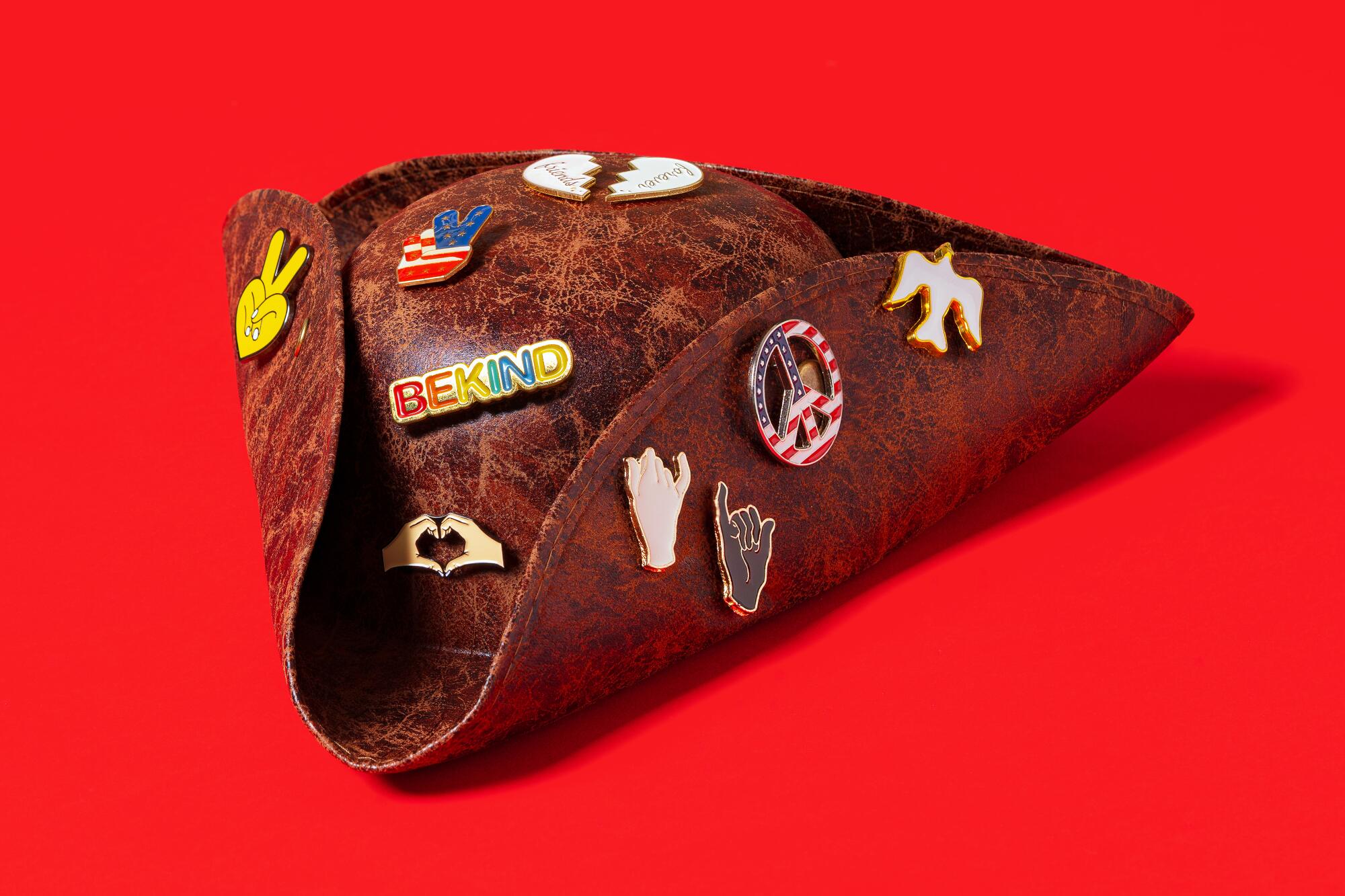
- Share via
In this age of partisan rancor, when political rivals often describe each other as enemies, we easily forget that Americans once took a revolutionary pride in being friends.
People have always had friendly feelings for certain others. But the modern concept of friendship was unfamiliar in the colonial past. While friends today tend to be peers and equals, the pre-1776 world was built on coercive inequalities. Fathers and masters told their wives, children, servants and slaves what to do. Tenants cowered before landlords. The crown tried to boss the colonies around.
In British politics, in fact, a friend was not someone you liked, but an ally at court or in Parliament — a tool for the tiny minority who mattered. For everyone else, there were mostly just superiors and inferiors, neighbors and relatives.
It was America’s good fortune to become independent during the Enlightenment, when people dared to imagine what the philosopher Joseph Priestley called “a totally new, and most wonderful and important” era of equality and amity.
By breaking free from the “dark and slavish” past, declared the revolutionary Thomas Paine in his famous 1776 pamphlet “Common Sense,” Americans would “carry our friendship” to strangers and foreigners. He saw this amicable approach to the world as distinctively American, although neither he nor most Americans thought to include Africans and Native Americans in their expanding circles of friendship, among other inequities of the era.
No longer subjects of the British Empire, Americans touted their democratic form of togetherness. As Thomas Jefferson, newly elected president, insisted in 1801, Americans were not members of one political faction or another, nor of different ranks in society. They were simply “fellow citizens,” civic equals who were free to form authentic friendships with one another.
In the same spirit, early American leaders often described U.S. foreign policy as the quest for friendship (not hostility, but not dependence either) with other nations. And whereas colonial leaders had styled themselves “fathers of the people,” early republican candidates claimed to be “friends of the people.”
More than a political ideal or slogan, friendship was an apt descriptor of the new social relations that were emerging in the United States.
The country’s early friendships could be emotionally intense. In 1804, one Virginian wrote that his “beloved” friend soothed his sorrows and bathed the world in a “soft and genial light.” Many women of the time described their same-sex friendships as more satisfying than their marriages — even as husbands and wives such as John and Abigail Adams, seeking a more affectionate kind of matrimony, now referred to their spouses as their “dearest friends.”
Post-revolutionary Americans moved more often and farther from their birthplaces than previous generations, meeting many strangers — and making new friends. Diaries and letters from this period brim with references to travel partners, classmates, Masonic lodge members and other peer groups who “cheered on” and befriended those far from home.
Then as now, most friends were similar in age, wealth and status. But since equality was such an important principle in early national life, friendliness spread widely through the culture, easing relations between rich and poor, rural and urban, locals and strangers.
Accustomed to chilly tensions between haughty aristocrats and sullen servants, European visitors were astonished at the warmth and candor with which Americans of different walks of life treated one another.
For example, farm owners and farm laborers in America took their meals at the same table, often talking politics while breaking bread. “If a man is good enough to work for me,” ran a saying from Ohio, “he is good enough to eat with me.” And by the mid-1800s, Americans no longer bowed or doffed their hats, as their grandparents once had. They shook hands, a simple but radical expression of mutual respect and basic goodwill.
No wonder that Abraham Lincoln turned to the ideal of friendship as the storm clouds gathered between North and South. “We are not enemies, but friends,” he declared in his first inaugural address in March 1861. “We must not be enemies.”
Of course, his plea fell short. Americans became enemies the very next month, and for the next four years they killed and hated one another on a ghastly scale.
Yet to focus on this fact is to treat history as a one-dimensional catalog of things that happened. The deeper purpose of studying the past is to gain perspective on all the things that might have happened, and thus to understand why events unfolded as they did, when they did.
Just as the American way of friendship had helped to keep the country together until 1861, it also enabled the United States to move on, however painfully, from the horrors of civil war and to become, however fitfully, a greater and more inclusive democracy.
We must not forget this usable past, especially during times like ours, which feel so angry and divided. We must start from the premise that we can get along, as past generations have, and remember that most Americans, most of the time, wish others well.
We are not enemies, but friends. We must not be enemies.
Jason Opal is an American professor of history at McGill University in Canada. In August he will join Ohio State University as dean and director of its Mansfield campus.
More to Read
A cure for the common opinion
Get thought-provoking perspectives with our weekly newsletter.
You may occasionally receive promotional content from the Los Angeles Times.






